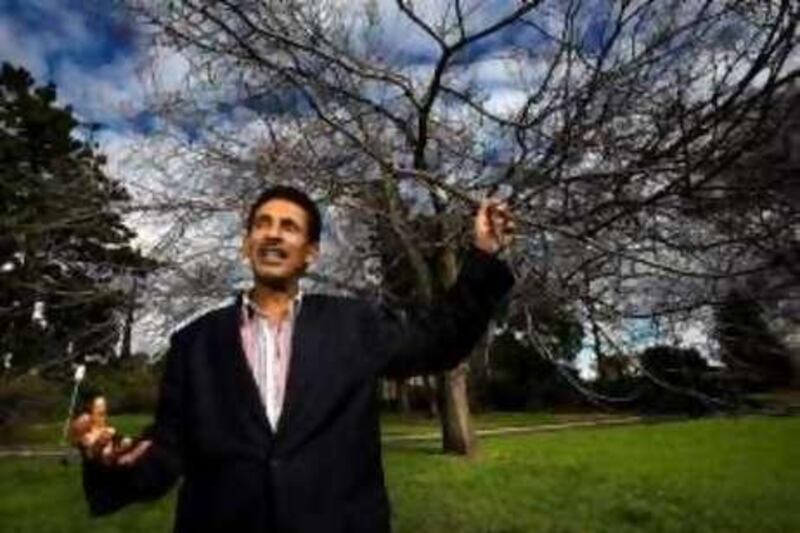SYDNEY // The first review into the experiences of black Africans in Australia has revealed lives of migrants blighted by "persistent pockets of racism". In Our Own Words, a study compiled by the Australian Human Rights Commission, has shown that many African immigrants and refugees who came seeking sanctuary in a faraway land arrived only to suffer abuse and rejection.
"I've been called a nigger to my face and have had a letter sent to me calling us black bastards," said Nyadol Nyuon, who was born to a Sudanese family in a refugee camp in Ethiopia in 1987, before moving four years later to Kenya, where she remained until coming to Australia in 2005. "Racism is very, very painful. It is hard to live with and hard to accept or justify," Ms Nyuon said at her home in Melbourne. "Sometimes it reaches a point when you actually begin to believe some of these things and doubt yourself."
Ms Nyuon has painted a disturbing picture of a minority group under siege, where young Sudanese men have been chased down suburban streets, taunted and pursued by racist gangs simply because of the colour of their skin, while children from African families have been subjected to the most humiliating insults at school. "It is more widespread than the politicians are willing to accept. I wouldn't go as far to say it's racist as a country, but it is very widespread," Ms Nyuon added.
The commission's report concluded that Africans were discriminated against in many areas, including the jobs market, housing, education and the justice system. It is estimated there are 500,000 black Africans living in Australia, and their numbers have increased steadily over the past five years. Since the end of the Second World War, successive waves of migrants from Lebanon, Greece, China, Vietnam, India or Italy faced years of prejudice in Australia before they were eventually tolerated or accepted by mainstream society.
Australia's race discrimination commissioner, Graeme Innes, said: "What is unfortunate is that people have to ride out the storm in the first place. We ought to be better at welcoming new arrivals when they get here, not after a period of trial. "That is one of the strong recommendations from the report, that we need to learn from migration experiences and ensure that this storm doesn't occur in the future."
Black Africans, it would appear, remain caught in a spiral of suspicion and bigotry, with the survey documenting the experience of many who suffer distress and alienation in what is a modern country built largely by immigrants. On the other hand, the report noted that many migrants from Africa had fitted smoothly into their new lives. "We need to address those areas of discrimination because we are a diverse country. Fifty per cent of Australians are either born overseas or have parents born overseas, so we need to address the persistent pockets of racism that still exist," Mr Innis said.
He has called for more culturally sensitive mental health services to help African-Australians adapt to a strange culture, where even the sight of streetlights or driving a car can be bewildering. Although the government in Canberra does fund counselling support for victims of torture and trauma, community leaders believe that more specialist assistance is required. Berhan Ahmed, chairperson of the African Think Tank and an academic at the University of Melbourne, said inequity and racism in Australia had crushed the hopes of many Africans. "It is very depressing, especially for people who come from a traumatic life, who come for new opportunities," said Dr Ahmed, a Muslim who was born in Eritrea but left as a teenager to flee the war with Ethiopia before arriving in Australia in 1987. That destroys dreams of the future. You feel like you have come to a place where you will be accepted but you are rejected."
Dr Ahmed, who worked as a tram conductor before embarking on his academic career, added: "It is shocking. I see people calling kids monkeys at school. It is really, really appalling, but it's good that the human rights commission has created broader awareness in society. "Being black and on top being a Muslim is a curse in itself because you are discriminated against in both ways. That hurts. For most people, it has been their worst nightmare in terms of coming to this society."
Despite his scathing criticism, Dr Ahmed said he was "very positive" about the future prospects for African migrants. And Ms Nyuon, who recently completed a bachelor of arts, said she was determined to make a success of her life, despite the intolerance she has been forced to endure. "It was quite a shock but at the same time it was exciting to know that I could be something more than just a refugee and a number somewhere," she said.
foreign.desk@thenational.ae





